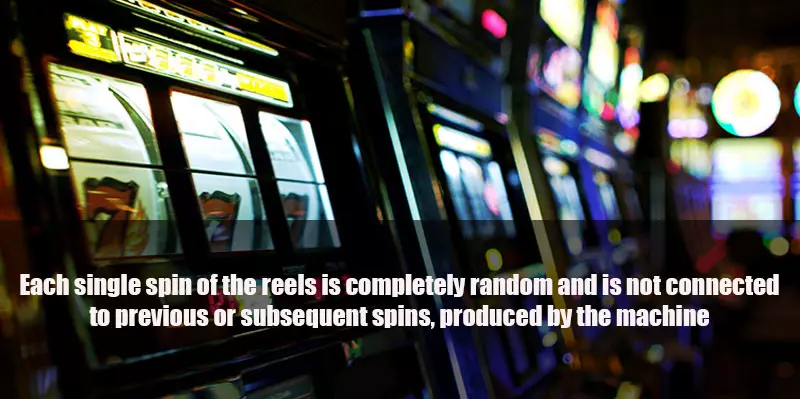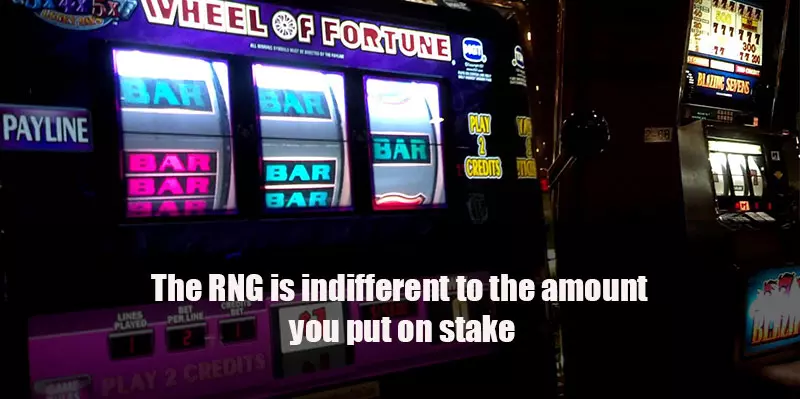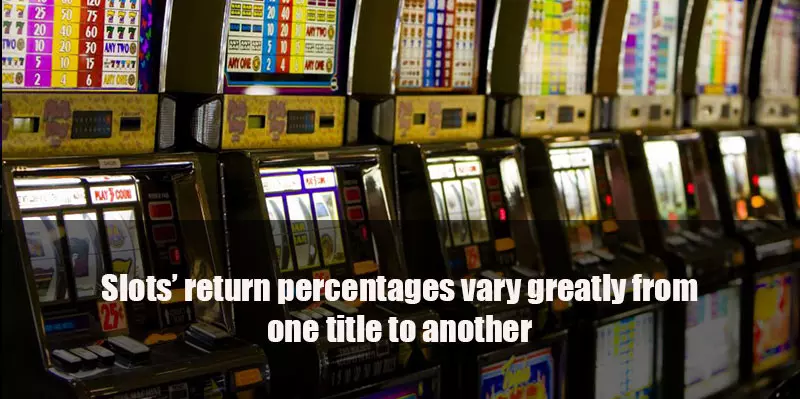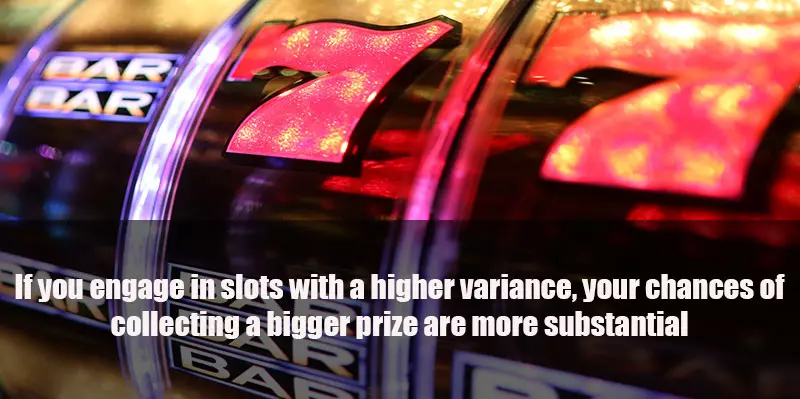Being the most sought-after game in both online and landbased casinos, slots attract millions of players with the promise of hefty prizes in a few spins. Even more so, when we consider the fact many of the slot titles have progressive jackpots that can truly change the lifestyle of the lucky players who hit the winning combination that triggers the colossal prize. Unfortunately, many players, especially those who lack experience, tend to forget that when it comes to slots, winning is based solely on luck.
Many superstitious players go through their own little rituals prior to hitting the Spin button in online slots or pulling the lever that sets the reels in motion in landbased casino slots. Some kiss their hands prior to hitting the button, others hope to invoke Lady Luck by holding objects that supposedly bring them luck. The truth of the matter is such practices are ludicrous and have zero effect on the outcome of the spins. Why? The answer is simple – the outcome of each spin of the reels is completely random and is determined by programmes, called Random Number Generators or RNGs.
How Random Number Generators (RNG) Work in Online Slots
The Random Number Generators or RNGs are used to determine the outcome of all online casino games, not just slots. The RNG is a microprocessor, similar to those desktop computers run on, whose main purpose is to select numbers within a particular range. Typically, the RNG produces and selects numbers within the range of zero to several billions. The programme produces long sequences of random numbers several thousand times per second by using a predetermined formula. As a matter of fact, the RNGs used in slots are programmed in a such a way so as to generate up to four billion numbers for every single spin. These long random numbers correspond to the stops on the slot’s reels.
It is precisely these numbers that decide the outcome of each spin of the reels. The RNG always begins with a starting number, which is referred to as a “seed number”. Then, the programme uses the seed number to generate a new, random number on the basis of a rather complicated algorithm. This new number will then itself become a seed, which creates yet another random number and this process repeats itself incessantly. Remember that there is no way for anyone to predict what the next number to be generated will be unless they know what the initial seed number was.

Also, it is important to mention that these random numbers are rather imposing in size and often the number of digits they consist of exceeds 200,000. When you place your bet and hit the Spin button, the outcome of the spin is determined by the number the RNG had produced at the exact millisecond you clicked the button. The reels will be set into motion creating the impression the outcome is yet to be decided when, in fact, it was decided the very instant you hit that button.
Please note the RNG is hard at work at all times and never ceases to spew its long sequences of numbers. In fact, it does so even when no one is playing on that particular slot because the game is played internally even when there is no one there to hit the Spin button. Thousands of winning and losing combinations are tirelessly produced by the RNG during the few seconds you pause to scratch your head or yawn.
In conclusion, players should not forget the outcomes of the reel spins are not sequential but purely random. Thus, no online slot is ever due for a hit, regardless of how long the jackpot has not been won. The RNG cares about nothing but numbers and is indifferent to the amount you put on stake. Whether or not you play with bonus credits is also irrelevant to the programme. The RNG is used in the interest of fair play and ensures all players have equal chances of hitting a winning combination.

The Relation Between RNG and Payout Percentages
When playing online, slot fans are likely to encounter the term Return to Player Percentage or RTP. This term is used to refer to the theoretical payout percentage of the games or what percentage of all wagered money will be paid back to the players over time. The RTP and the house edge are closely related.
For instance, if a given slot is said to have an RTP of 96.60%, this would mean that out of every £100 players have wagered, they can expect to receive back £96.60 in winnings, while the remaining £3.40 will be collected by the casino. However, this return percentage, though accurate, is achievable only over extended periods of time where thousands of spins are involved. The house edge for one such slot would be 3.40%, respectively.
If all slots that run on RNGs were created with the same number of stops, they would share precisely the same Return to Player Percentage, at least in theory. But if you take one quick glance at the tables with the return percentages of all games that online casinos publish regularly, you will surely notice the slots’ return percentages may vary greatly from one title to another. You may even notice that the return percentage of a given slot might differ from one online casino to another.

The reason for these discrepancies lies in the fact that the programmers or mathematicians, who created the RTG, may also choose to weigh the individual stops of the slots. For example, they can decide to assign ten possible random-number combinations to the lemon symbol stop, while the non-winning space above the lemon can be assigned a hundred random-number combinations. Because of this, the return percentages of the slots differ.
However, gambling regulatory bodies have set out specific rules that the web-based casino operators and the developers of online casino games are expected to follow. Restrictions are imposed in order to limit the extent to which certain slot stops can be weighed.
Random Number Generator
Slots Strategies
How to Play Winning Slots
3D Online Slots
Virtual Reality Online Slots
High and Low Variance Online Slots
The term “variance” is often used in reference to slots but less experienced players may wonder what it means. The term is used to denote how often and how much players can to win on a given online slot during their gaming session.
We can distinguish between two main categories of slots – those with low variance and those which have a higher variance. If you play slots with low variance, you will notice these pay out more frequently but the prizes are modest in size. Such slots are typically called “loose”. Low-variance slots are more suitable for players looking to cover their wagering requirements after claiming a given casino bonus. Slots in this category are also recommended to players with more modest bankrolls as such games will not exhaust the bankroll as quickly as their high-variance counterparts and will enable players to maximise their playing time.
If you engage in slots with a higher variance, your chances of collecting a bigger prize or of hitting a lucrative multiplier are more substantial. However, smaller wins on high-variance slots occur less frequently. Because of this, high-variance slots are recommended to players who are not averse to taking risks as well as to those, who have larger bankrolls.
Seasoned slot players typically bet smaller amounts per spin on the high-variance slots and place larger bets on the slots with low variance. This approach is indeed suitable because it enables players to extend their gaming session, minimise the risk involved and maximise their playtime.

Slot Myths Dispelled by the Use of RNGs
Many slot fans fall prey to the so-called Gambler’s Fallacy, believing that the outcome of previous spins affects that of the spins that are to follow. Such players often think that if they have not hit a winning combination on the last eight or nine spins, the winning symbols are “due” to land on the reels on the tenth spin. This is one of the biggest myths in regard to slots and is often accompanied by larger bets. Yet, there is absolutely no logic to back it up because the outcome of each spin is random and depends solely on the RNG. Each spin is a completely independent event.
Another misconception is that slot players who bet using bonus credits or Comp Points will have smaller chances of hitting a winning combination. The “logic” behind such claims is that the casino operators are attempting to compensate for the perks and bonuses they reward their patrons with. However, the RNG has no way of knowing whether the player is using bonus credits or their own money, it simply produces sequences of long numbers to ensure the outcome is random at all times.

Some players assume that they should stick to the same slot because if they leave after they have “fed” it by playing with real money, the next person who joins the game will collect greater payouts or even walk away with “their” jackpot. In reality, there is no such thing. Believe it or not, when you quit the game, the RNG continues to determine the outcome of the spins at random and will not “favour” another player over you. What is more, the RNG continues its work even when there is no one there to play that particular slot.
Finally, there are players who assume that there are hot and cold streaks in slots because the games’ payouts are based on cycles. Yet, this is practically impossible since the RNGs are so efficient at ensuring randomness that even if there were cycles, it would be impossible for players to detect and use them to their advantage. Also, there are no hot and cold streaks when it comes to slots. If you experience more frequent wins on a given slot, this simply serves to indicate you are playing a game with a lower variance.